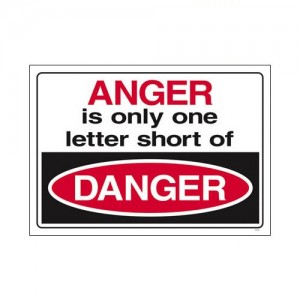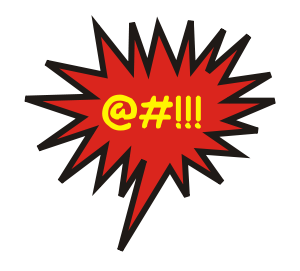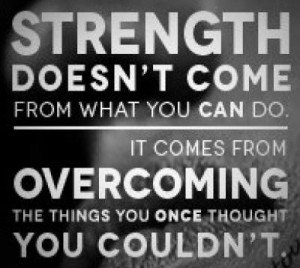At the end of 2012 I received an email from a Vietnam veteran, an ER physician, who had received my book, and wanted to order another one for his son. Below is the string of emails back and forth. I am so grateful that my story helped this veteran father share with his son after all these years.
Dear Quynn,
Your book appeared on my desk one day.
I just received treatment for PTSD which I thought I might have
mildly, until I became unable to practice as a physician in July
and suicidal in December, at which I went to the VA and they
secured a spot for me in the Six Week In-patient PTSD program
at the Memphis VA.Four of the kindest people in the world there helped me see that
I’d actually been carrying a heavy load and I was OK.I’m getting a divorce, final soon. I was angry all the time, isolated, all
the classic symptoms. For some reason my ex-wife refuses to accept I
have PTSD, even though I was a rifleman for a full year with the
9th Infantry Division, have a Purple Heart, witnessed children
being killed. She says my deeper problem is a poor relationship
with my mother who admittedly was not a good person.I tell her watching all your friends die, and children, is worse
than a bad mom but she just walks away.I can never figure that out. Do you have any idea why she wouldn’t
want to believe I have PTSD?I’m reading your book in little bits and doses (I already have a
copy, that’s how I knew to write you) because it is so powerful it’s
all I can stand.Thanks for writing your exceptional book.
R,
Thank you for sharing a bit of your experience, and thank you for your kind words about my book. Maybe someone put the book on your desk because they thought you needed it. I have had books at the Memphis VA I think.
Regarding your wife’s feeling about your situation, I would imagine that there are issues that you might still have with your mother, who doesn’t? I find that all these issues can bundle together into a big knot, but once the PTSD is in the light, it can possibly be easier to see and understand any issues that were created during childhood. Wives often have a very hard time of it in this situation, the hardest actually. Just keep moving towards healing. I mentioned this issue (divorce) in my book. “Everyone has a place, even if it isn’t with you.”
I am curious, when did you serve?
Thank you for reaching out,
Quynn,
I was with E/6/31st in the 9th Inf. Div. from April 1968 to 12/68,
and then C/4/47th in the Mobile Riverine Force of the 9th 12/68-4/5/69.I happily give you permission to use any or all of what I said.
I sent a copy of your book to my son and then had a
nearly two hour talk with him last week, first I’ve talked with him since June 2011.
He’s a junior in HS so had a front row seat to see my anger and isolationism and it occurred to me
after reading your book that he probably didn’t know I had five
entrance and exit holes in my helmet or that I witnessed children
being executed by the VC or that I think I’m the only guy from my
squad to survive.He didn’t. He just knew I’d been wounded.
I told him I didn’t expect him to forgive me but that knowing the
horrific things that happened to me might give him some under-
standing, which sometimes helps a bit.Oddly enough, seeing those children killed didn’t harden my
heart exactly, although it put me on the other side of a glass wall,
the rest of the world being on the other. But it did make me really
good with caring for children as patients, and various nurses have
told me I should have been a pediatrician, and as an ER doc I
have saved the lives of a few kids who were in the final stages of
dying which isn’t as easy as it sounds, believe me.So maybe those awful incidents helped in a way.
I really owe you so much for your book, as I never would have
talked with him had it not been for your book.Thank you.
Anonymous, MD
 “As we express our gratitude, we must never forget that the highest appreciation is not to utter words, but to live by them.”
“As we express our gratitude, we must never forget that the highest appreciation is not to utter words, but to live by them.” Man’s Best Friend is so true! “Man”, meaning “Human”, of course. It is no surprise to this dog lover that ‘dog therapy’ has become officially popular in the veteran community. August 5-11 2012 is, officially, “International Assistance Dog Week”, as stated on the
Man’s Best Friend is so true! “Man”, meaning “Human”, of course. It is no surprise to this dog lover that ‘dog therapy’ has become officially popular in the veteran community. August 5-11 2012 is, officially, “International Assistance Dog Week”, as stated on the 
 As many people do these days, especially writers, I recently ‘googled’ myself to see what appears under my name. I found two Guest Opinion articles I wrote for the
As many people do these days, especially writers, I recently ‘googled’ myself to see what appears under my name. I found two Guest Opinion articles I wrote for the  Two years ago on July 4th, I heard from a friend who is a two tour veteran of the Iraq war, and he ‘joked’ that he was going to spend the evening under the bed ‘comforting his frightened dog’. I remember him saying how ironic it is that the tradition created to honor our freedom, freaks out the same people who have fought for that freedom.
Two years ago on July 4th, I heard from a friend who is a two tour veteran of the Iraq war, and he ‘joked’ that he was going to spend the evening under the bed ‘comforting his frightened dog’. I remember him saying how ironic it is that the tradition created to honor our freedom, freaks out the same people who have fought for that freedom. A couple of days ago I got angry. I felt a kind of anger I hadn’t felt in quite a while. I have worked very hard over the last decade to not let myself be triggered into the the kind of anger that causes damage. As a teenager, when my family was breaking apart due to my father’s alcoholism and PTSD, I was so angry I would yell at my mother that “I didn’t ask for this s*!t”. I would blame her for my confused feelings. One time I was so angry at my fighting parents in the other room, I went to my bedroom, and kicked a hole in the wall. The strength I felt surprised me, and took me aback. My anger turned into sadness and drinking in my twenties. As my relationship with my father (two tour combat veteran of the Vietnam war) was at this low point, I too felt so low that I sought out counseling. In my early and mid twenties I had hit bottom. I could barely go to work and I certainly couldn’t feel open hearted in any way.
A couple of days ago I got angry. I felt a kind of anger I hadn’t felt in quite a while. I have worked very hard over the last decade to not let myself be triggered into the the kind of anger that causes damage. As a teenager, when my family was breaking apart due to my father’s alcoholism and PTSD, I was so angry I would yell at my mother that “I didn’t ask for this s*!t”. I would blame her for my confused feelings. One time I was so angry at my fighting parents in the other room, I went to my bedroom, and kicked a hole in the wall. The strength I felt surprised me, and took me aback. My anger turned into sadness and drinking in my twenties. As my relationship with my father (two tour combat veteran of the Vietnam war) was at this low point, I too felt so low that I sought out counseling. In my early and mid twenties I had hit bottom. I could barely go to work and I certainly couldn’t feel open hearted in any way. The next day I helped like I said. I also emoted a lot in the car. I shared my frustration, irritation and anger. I was careful not to be mean, but I felt I wanted this person to know how I felt. I felt I had earned the right to be honest, even if it wasn’t “nice”. At the end of our daylong interaction in my van, I heard, “Look”…Sigh. I saw leaking radiator fluid on the floor of the passenger seat. I knew immediately my mistake. It may sound strange, but I have learned over the years that my anger affects things. I have had numerous experiences in the past where my overt anger immediately breaks something in my vehicle. Some may think that is impossible, and I might even logically agree, yet I have watched it happen in front of my eyes. I had forgotten, and this day I was made to remember. I had overheated, and now I would have to fix something related to my radiator.
The next day I helped like I said. I also emoted a lot in the car. I shared my frustration, irritation and anger. I was careful not to be mean, but I felt I wanted this person to know how I felt. I felt I had earned the right to be honest, even if it wasn’t “nice”. At the end of our daylong interaction in my van, I heard, “Look”…Sigh. I saw leaking radiator fluid on the floor of the passenger seat. I knew immediately my mistake. It may sound strange, but I have learned over the years that my anger affects things. I have had numerous experiences in the past where my overt anger immediately breaks something in my vehicle. Some may think that is impossible, and I might even logically agree, yet I have watched it happen in front of my eyes. I had forgotten, and this day I was made to remember. I had overheated, and now I would have to fix something related to my radiator. It is Memorial Day, a day when we remember American service members who have died while in the Armed Forces. For this Memorial Day, 2012, a decade of war has left many casualties. Today I am thinking about the war casuality of the Family.
It is Memorial Day, a day when we remember American service members who have died while in the Armed Forces. For this Memorial Day, 2012, a decade of war has left many casualties. Today I am thinking about the war casuality of the Family.